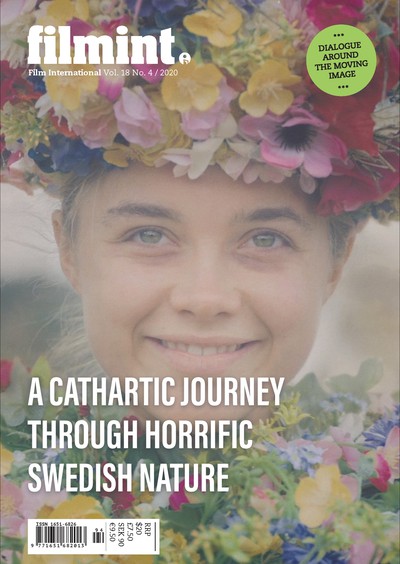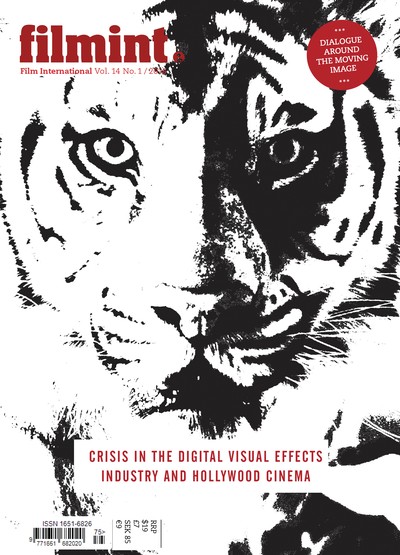Film International i — March 2016, #75

Film International
Film International covers film culture as part of the broader culture, history and economy of society. We address topics of contemporary relevance from historically informed perspectives. We wish to bridge the gap between the academy and the outside world, and encourage the participation of scholars from a variety of disciplines, as well as journalists, freelance writers, activists and film-makers.
- 232 (30)
- United Kingdom
- Four issues a year
- Art, Culture, Design, Fashion, Film & Television
- First issue 1973
- ISSN 1651-6826
“March 2016”
GBP 7.00 — Released 6 July 2016
Brianne Brenneman surveys the female characters in Woody Allen’s films of the 1970s and finds that these films consistently ‘portray women who have been written as ultimately making the male lead appear more decent, likeable, and sympathetic.’ Harriet Earle takes a Freudian look at the creation of the traumatic female body in Lars von Trier’s Antichrist. ‘For Scorsese, moreover, “the way of the future is all about unrestrained greed:”’: Leighton Grist performs a close reading of The Aviator, connecting ‘filmmaking, capitalism, flying and the psychopathological.’ Ina Karkani takes on Greek cinemas ‘weird’ response to social and economic crisis. Tony Williams makes the case for regarding the complete version of The Magnificent Ambersons as Orson Welles’s version of Chekhov’s The Cherry Orchard, while Garry Leonard discusses classic cinematic melodrama, T.S. Eliot and modern attempts ‘to replicate the function formerly structured by the sacred in day to day life.’ Also in our next issue, Santiago Rubín de Celis on the unproduced film projects of André Delvaux, and Katrina Sark on Beatrice Möller’s documentary about two generations of women, Everything We Want. Add to this a selection of interviews, including an in-depth talk to Pedro Costa, and, of course, our regular columns.
What do you think of this issue?
Sign up or Log in to join the discussion.
Recent activity
- 14 Sep, 2017 Added to pile by AmyCostall
- 14 Sep, 2017 Wanted by AmyCostall
- 16 Oct, 2016 Wanted by LauraraMonique
- 06 Jul, 2016 New cover uploaded by SteveHarries
- 06 Jul, 2016 Added to Magpile by SteveHarries

